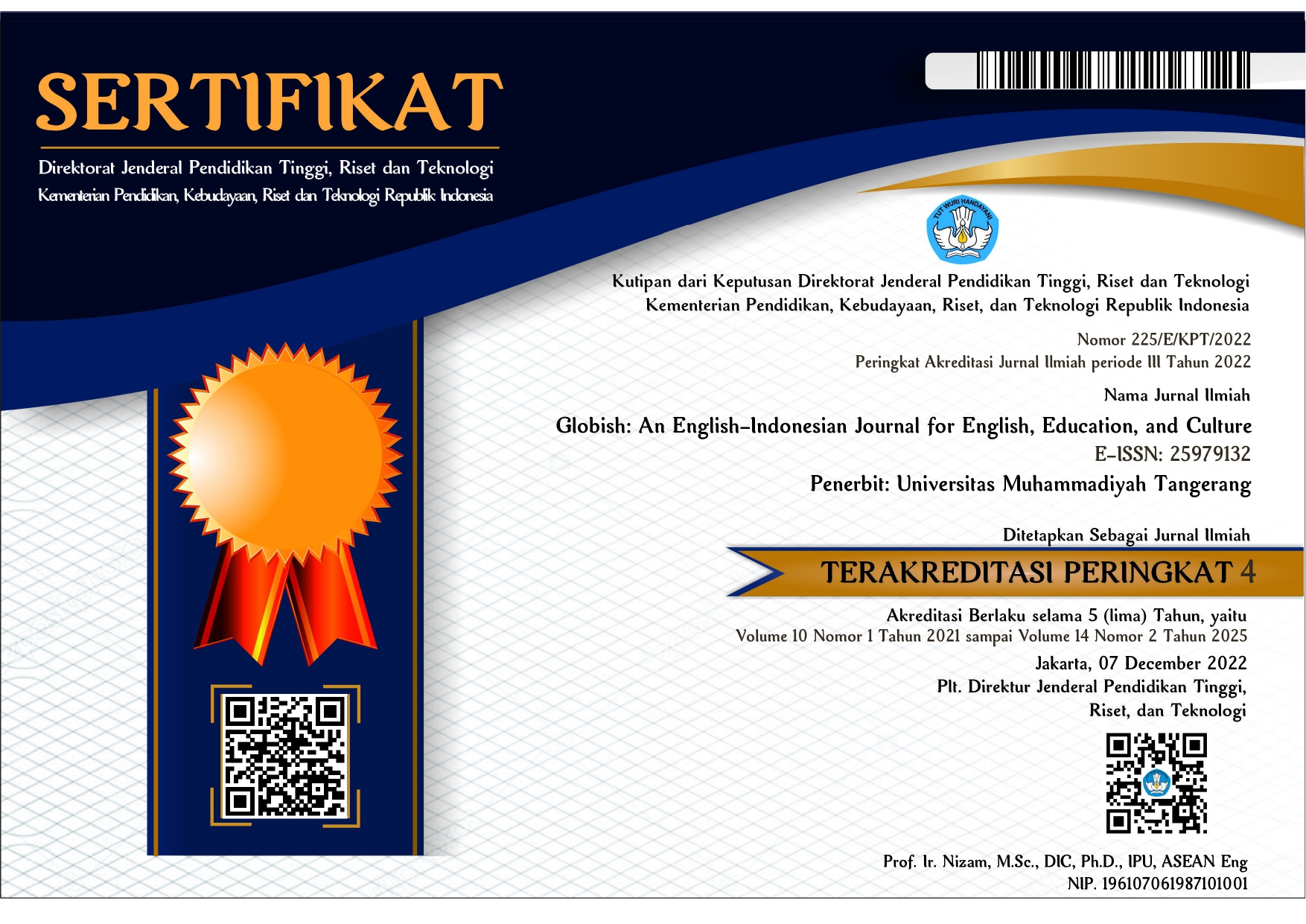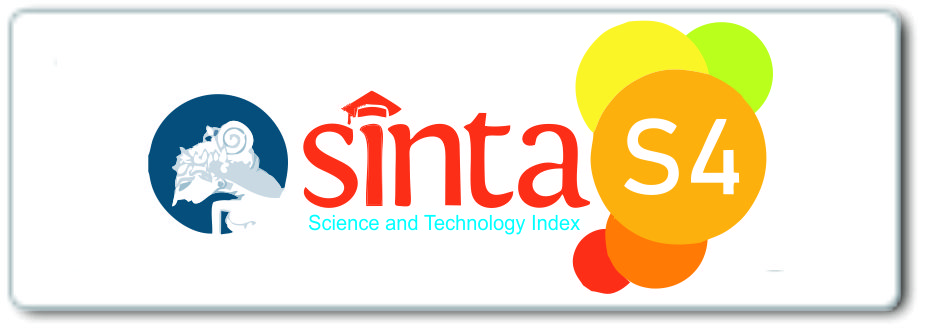THE SHIFTING OF FACE TO FACE LEARNING TO DISTANCE LEARNING DURING THE PANDEMIC COVID-19
Abstract
Abstract
Using a qualitative research methodology, this study is expected to answer on how students’ responses toward distance learning during the pandemic (Covid-19). Moreover, this study also provided factual data, suggestions and advices on how distance learning implemented. A qualitative research methodology was applied to 30 students of University of Muhammadiyah (UMT) Tangerang after 14 meeting of distance learning using Google Classroom. Questionnaires were distributed online to see how students’ responses toward a distance learning. The findings proved that there were significant impacts to the students’ learning performance such as computation skills, autonomous learner and critical learner. Besides, negative impact arose due to connectivity, compatible devices, basic skill of computation and also student-teacher communication.
Keywords: distance learning, students’ learning responses and experience
Keywords
Full Text:
PDFReferences
REFERENCES
E-learning Advisory Group 2002. Highways and pathways: Exploring New Zealand's e-learning opportunities. Wellington: Ministry of Education.
Gedera, DSP, Williams, PJ & Wright, N 2013. “An Activity Theory analysis of Moodle in facilitating asynchronous activities in a fully online university course”, International Journal of Science and Applied Information Technology, vol. 2, no. 2, pp. 6-10.
Gilmore, S., & Warren, S. (2007). Themed article: Emotion online: experiences of teaching in a virtual learning environment. Human Relations, 60(4), 581-608. doi:10.1177/0018726707078351
Greenhow, C., Robelia, B., & Hughes, J. E. (2009). Learning, teaching, and scholarship in a digital age: Web 2.0 and classroom research: What path should we take now? Educational Researcher, 38(4), 246-259. doi:10.3102/0013189X09336671
Gilmore, S., & Warren, S. (2007). Themed article: Emotion online: experiences of teaching in a virtual learning environment. Human Relations, 60(4), 581-608. doi:10.1177/0018726707078351
KU LEUVEN. (2020, May 02). Students response systems. (K. Leuven, Producer, & KU Leuven) Retrieved June 17, 2020, from www.kuleuven.be: https://www.kuleuven.be/english/education/media-technology/student-response-systems
Rachmatunnisa. (2020, 03 30). detiknet-mobile Apps. Retrieved 06 21, 2020, from www.detik.com: https://inet.detik.com/mobile-apps/d-4957714/download-google-classroom-tembus-50-juta-selama-pandemi-covid-19
Robles, M. & Braathen, S. (2002). Online assessment techniques. Delta Pi Epsilon Journal, 44 (1). 39- 49.
Thorne, K. (2003). Blended Learning : How to Integrate. London: Kogan.
WebMD. (n.d.). How does coronovirus spread? Retrieved 06 21, 2020, from www.webmd.com: https://www.webmd.com/lung/coronavirus-transmission-overview#1
Wang, Q., H. L. Woo, H.L., Quek, C. L., Yang, Y. and Liu, M. Using the Facebook group as a learning management system: An exploratory study. Br. J. Educ. Technol, 2012, 43(3): 428–438.
DOI: http://dx.doi.org/10.31000/globish.v9i2.2772
Article Metrics
Abstract - 6010 PDF - 926Refbacks
- There are currently no refbacks.
Globish
Program Studi Pendidikan Bahasa Inggris
Fakultas Keguruan dan Ilmu Pendidikan
Universitas Muhammadiyah Tangerang
Jl. Perintis Kemerdekaan I/33, Cikokol
Kota Tangerang, Indonesia
e-mail: globish_journal@umt.ac.id
Globish (p-ISSN: 2301-9913 | e-ISSN: 2301-9913) is licensed under a Creative Commons Attribution-ShareAlike 4.0 International License.









